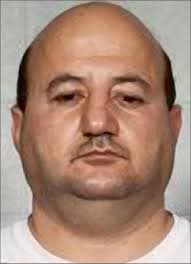Decade-old American Point Shaving Case Nears Conclusion
A decade-old point shaving scandal involving football and basketball players at the University of Toledo is finally nearing its conclusion after several of the remaining defendants in the case recently agreed to plea deals in order to resolve longstanding charges.

As cheating scandals go, this one wasn’t a huge tale on its own, though the details behind the story illustrate a good deal of what’s wrong with the collegiate sports system within the United States. For decades, the National Collegiate Athletic Association’s has clung to an antiquated “amateur” structure that does more than block athletics from accepting pay, it actually prevents them at times from living a normal college-style existence.
Cases such as the one which occurred at the University of Toledo, in the Ohio city of the same name, just never really need to occur in the first place. That’s sort of the greater shame of the whole tale.
And a long tale it is. Seven (American) football and basketball players at the U. of Toledo were eventually implicated in the point-shaving scheme, which ran from 2004-2006 and was orchestrated by Ghazi “Gary” Manni, from Detroit, MI, from where many of the athletes involved lived prior to college.
Manni, an Iraqi native who relocated to Detroit, is by all reports a crook, with a steadily growing rap sheet of various offenses. Currently serving time (since 2013) on an unrelated illegal-weapons charge, Manni also had time to be involved in an aid-fraud scheme involving $1.4 million of illegally obtained food stamps, and just as a sideline, was also was arrested for attempting to fix horse races as well.
Maybe attempting to fix the sports games involving the U. of Toledo athletes was just another hobby, but Manni exploited his links to the players, coming into contact with them when they visited his Detroit cell-phone store. Manni was alleged by prosecutors to have wagered at least $300,000 on the affected Toledo games, though the players themselves received scant compensation — as little as $500, according to published reports.
It all fell apart in 2009, when indictments were handed down against seven implicated players, along with Manni and another co-conspirator, and the case has staggered through the court system ever since. The recent deals involve the last of the three players to reach deals with prosecutors — basketball players Keith Triplett, Anton Currie, and Kashif Payne — plus Manni himself.
The three players, as with four others who already reached plea deals, will receive probation for their roles in the affair, and that seems just, when one considers that the felony cromes will be permanently part of their police records.
Also seemingly just is that Ganni, the scheme’s instigator, will receive a sentence of no more than 70 months, or a little less than six years. Whether that will be tacked on to his ongoing weapons-charge term or will run concurrently is not made clear in recent news reports, and has, in any event, not been finalized by the presiding judge. All of the recent deals await a final sentencing hearing in early 2015.
What’s sad about the story is how the athletes — most, if not all, of them were on scholarship at the U. of Toledo — could be enticed into endangering their education and potential livelihood for a few measly hundred dollars, just because they come from disadvantaged backgrounds and have few real employment opportunities.
That’s a major problem with the NCAA and its decades-long failure to implement even a modest “per diem” system that would disincentivize scruffy little sports betting cheats from trying to fix games in a manner such as this. The NCAA is all set up to pour millions of dollars into the coffers of its member schools, while leaving its athletes open to this sort of cheap exploitation. If this case isn’t a sign of a broken system, then nothing is.





